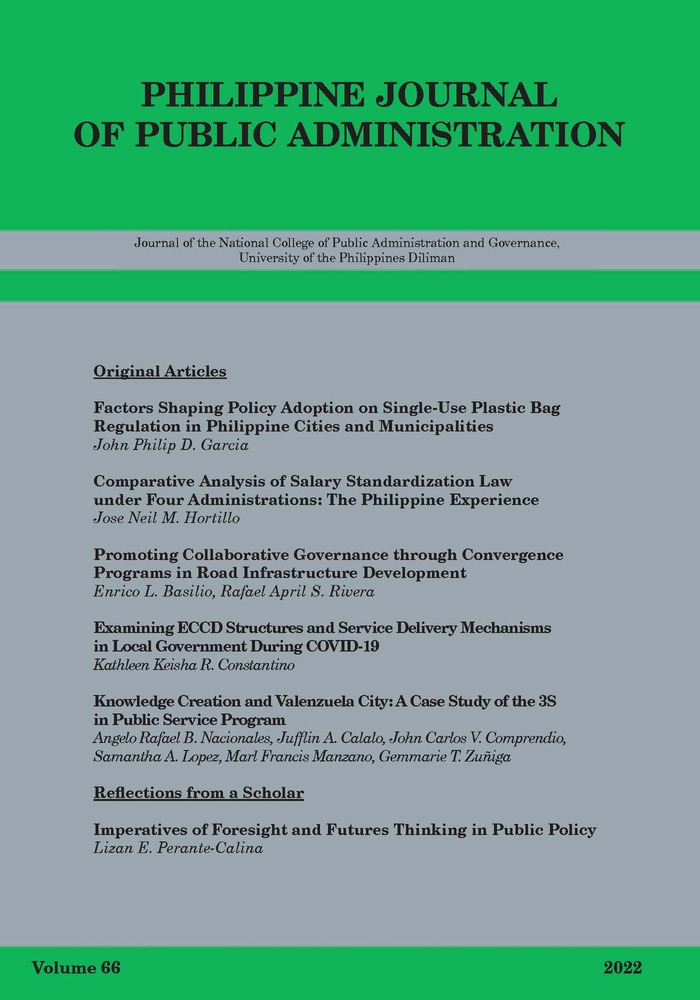Promoting Collaborative Governance through Convergence Programs in Road Infrastructure Development
Abstract
Over the years, the Philippines has consistently ranked low in overall transport infrastructure development, as documented in the
World Economic Forum annual reports. One of the contributing factors to this poor performance is the weak coordination between and among
concerned national and local government agencies in infrastructure development in the country, as evidenced by failure to ensure seamless
intermodal transport connectivity that promotes public convenience. Intergovernmental collaboration remains a major challenge. In 2012,
building on the concept of collaborative governance, the Department of Tourism (DOT) and Department of Public Works and Highways
(DPWH) embarked on a convergence program that would address the twin objectives of increasing public investments in tourism roads and
enhancing seamless connectivity between the transport gateways and service centers in the tourism destination sites. This article argues that
convergence is a new norm in addressing bottlenecks in road infrastructure development. It presents the major factors that contributed to the
successful implementation of the DOT-DPWH Convergence Program, which also paved the way for other similar convergence programs. The
article also highlighted that investments in tourism road projects have led to a substantial increase in tourist arrivals at the provincial level. The
study then offers recommendations on how to further promote convergence programs as an alternative approach of collaborative governance in the Philippines.



